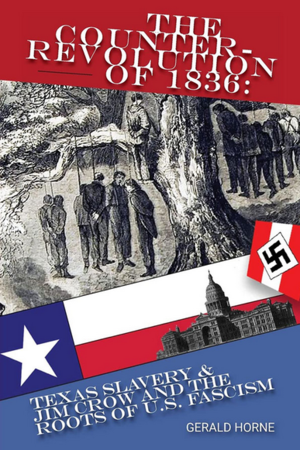Texas has become a leader of ultra-right forces nationally –
especially since the 1950s – when the notorious oilmen were the
bulwark of support for McCarthyism. One lesson from Texas history,
though, is that repression was so severe because resistance was so
daunting – a lesson to keep in mind as this century unfolds.
When Mexico moved to
abolish slavery, Texas seceded in 1836 – in a replay of 1776 – in
order to perpetuate enslavement of Africans. Until 1845 Texas was an
independent nation and moved to challenge the U.S. for leadership in
the odious commerce of the African Slave Trade: Texas also competed
vigorously with the U.S. in the dirty business of denuding Mexico by
snatching California in the race to the Pacific and domination of the
vaunted China market.
But Texas could not
withstand pressure from abolitionist Mexico and revolutionary Haiti
and joined the U.S. as a state – under questionable legal
procedures – in 1845. Thereafter Texas’ enslaved population
increased exponentially along with land grabs targeting Comanches,
Caddo, and Kiowa – and other Indigenous nations – leading to
staggeringly violent bloodshed.
But Mexico continued to support Indigenes and the enslaved, irking
Texas, which then led the secession from the U.S. in 1861 in order to
perpetuate enslavement of Africans forevermore-though a number of
leaders in Austin wanted to avoid the resultant Civil War by moving
southward and snatching Cuba, Nicaragua and points southward.
But weakened by
conflict with the U.S., Mexico was then seized by France which then
plotted with Texas to continue enslavement of Africans after the
defeat of the rebels in 1865-and after "Juneteenth" of the
same year.
Black troops helped
to foil this deviltry but, alas, during the Reconstruction
era-1865-1876-these same soldiers were at the tip of the spear as
Indigenes were being pounded in West Texas as Black people were being
pounded by the Ku Klux Klan in East Texas.
Texans were also in
the vanguard during the scandalous 6 January 2021 insurrection on
Capitol Hill and promises to be in the forefront as a unique U.S.
fascism seeks to rise.
One lesson from
Texas is that Repression was so severe because Resistance was so
daunting-a lesson to keep in mind as this century unfolds.

